Tyan Transport SX TS65-B8253 Performance
At STH, we have an extensive set of performance data from every major server CPU release. Running through our standard test suite generated over 1000 data points for each set of CPUs. We are cherry-picking a few to give some sense of CPU scaling.
Python Linux 4.4.2 Kernel Compile Benchmark
This is one of the most requested benchmarks for STH over the past few years. The task was simple, we have a standard configuration file, the Linux 4.4.2 kernel from kernel.org, and make the standard auto-generated configuration utilizing every thread in the system. We are expressing results in terms of compiles per hour to make the results easier to read.
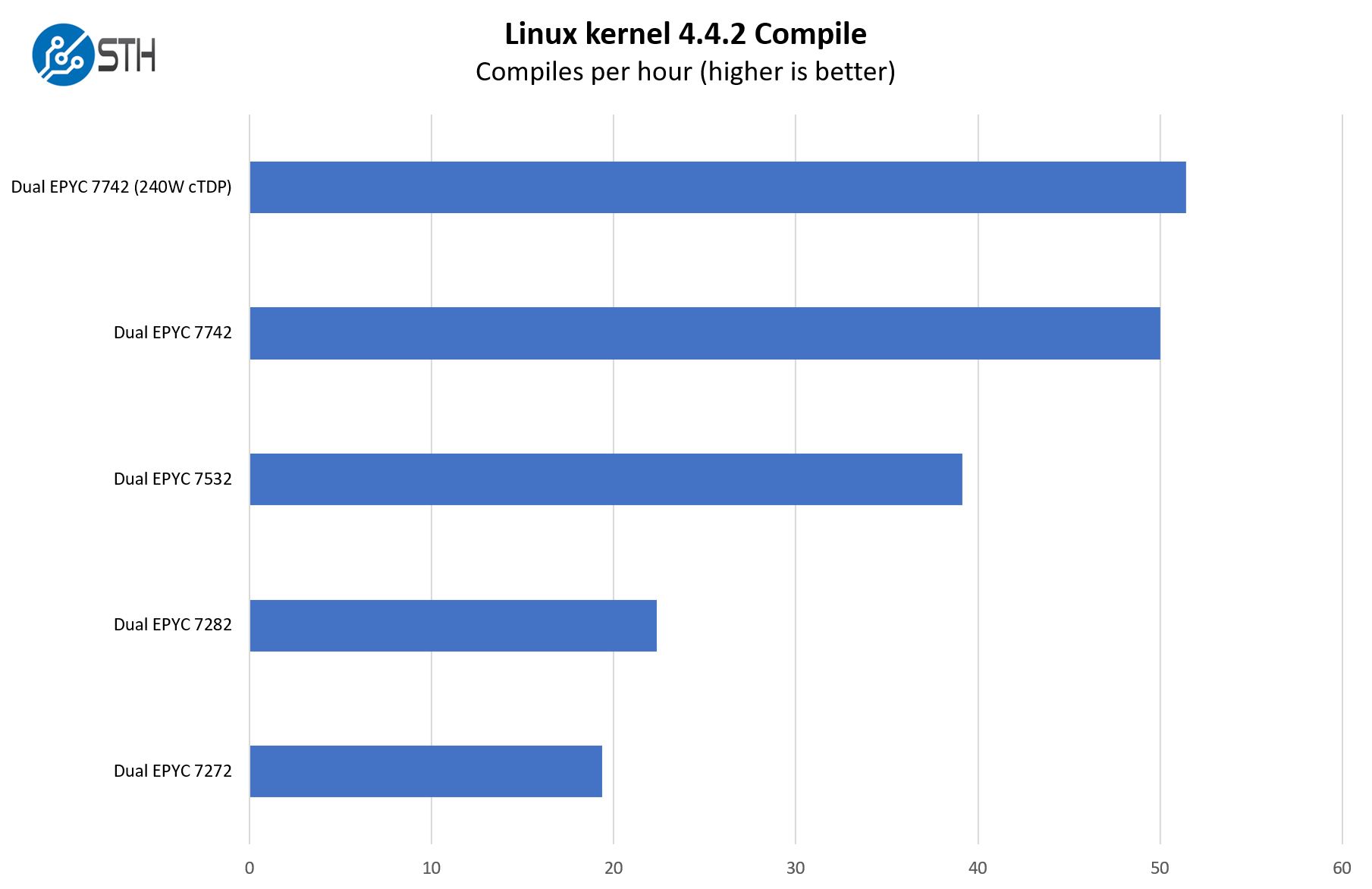
For this exercise, we are testing a variety of CPU options from the lower-end cost and power-optimized EPYCs up to the higher-end SKUs to show a range of performance.
c-ray 1.1 Performance
We have been using c-ray for our performance testing for years now. It is a ray tracing benchmark that is extremely popular to show differences in processors under multi-threaded workloads. We are going to use our new Linux-Bench2 8K render to show differences.
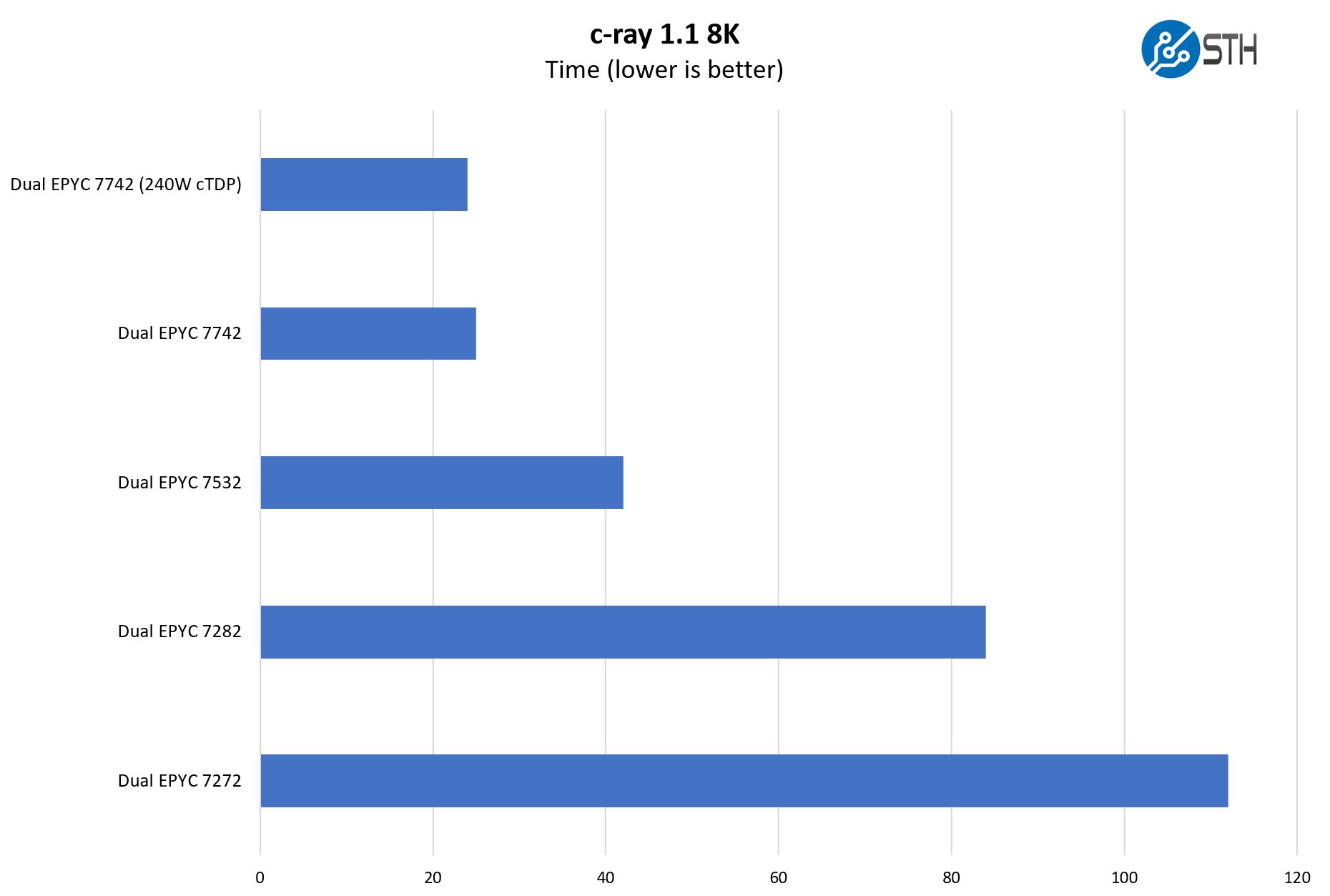
We managed to configure our EPYC 7742 SKUs at 240W cTDP just to validate that the system was effectively cooling them. Our sense is that most buyers of this class of system will look for lower-end CPUs rather than these higher-end units.
7-zip Compression Performance
7-zip is a widely used compression/ decompression program that works cross-platform. We started using the program during our early days with Windows testing. It is now part of Linux-Bench.
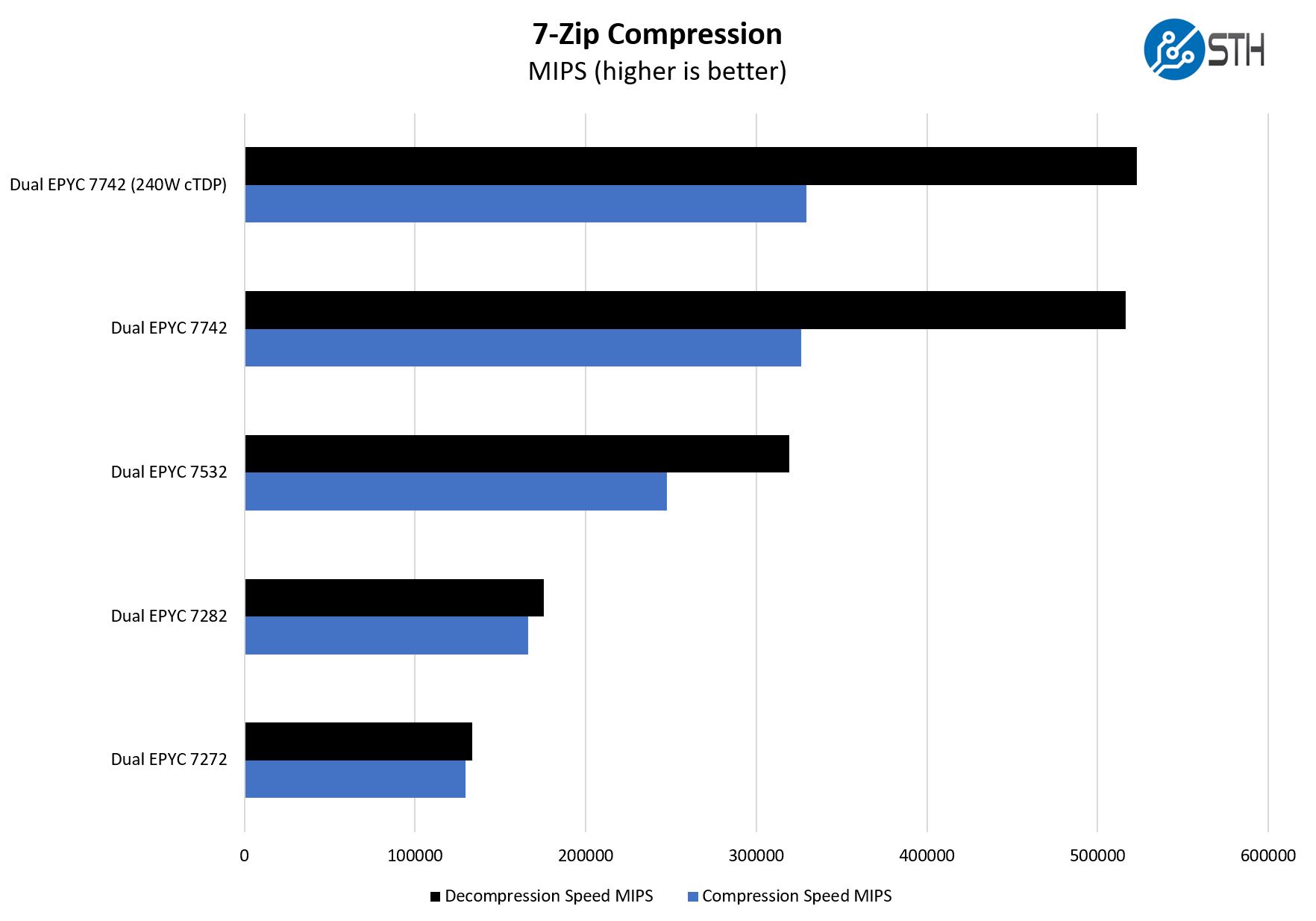
Having a lot of cores available helps storage applications immensely as they perform compression, encryption, and deduplication tasks.
OpenSSL Performance
OpenSSL is widely used to secure communications between servers. This is an important protocol in many server stacks. We first look at our sign tests:
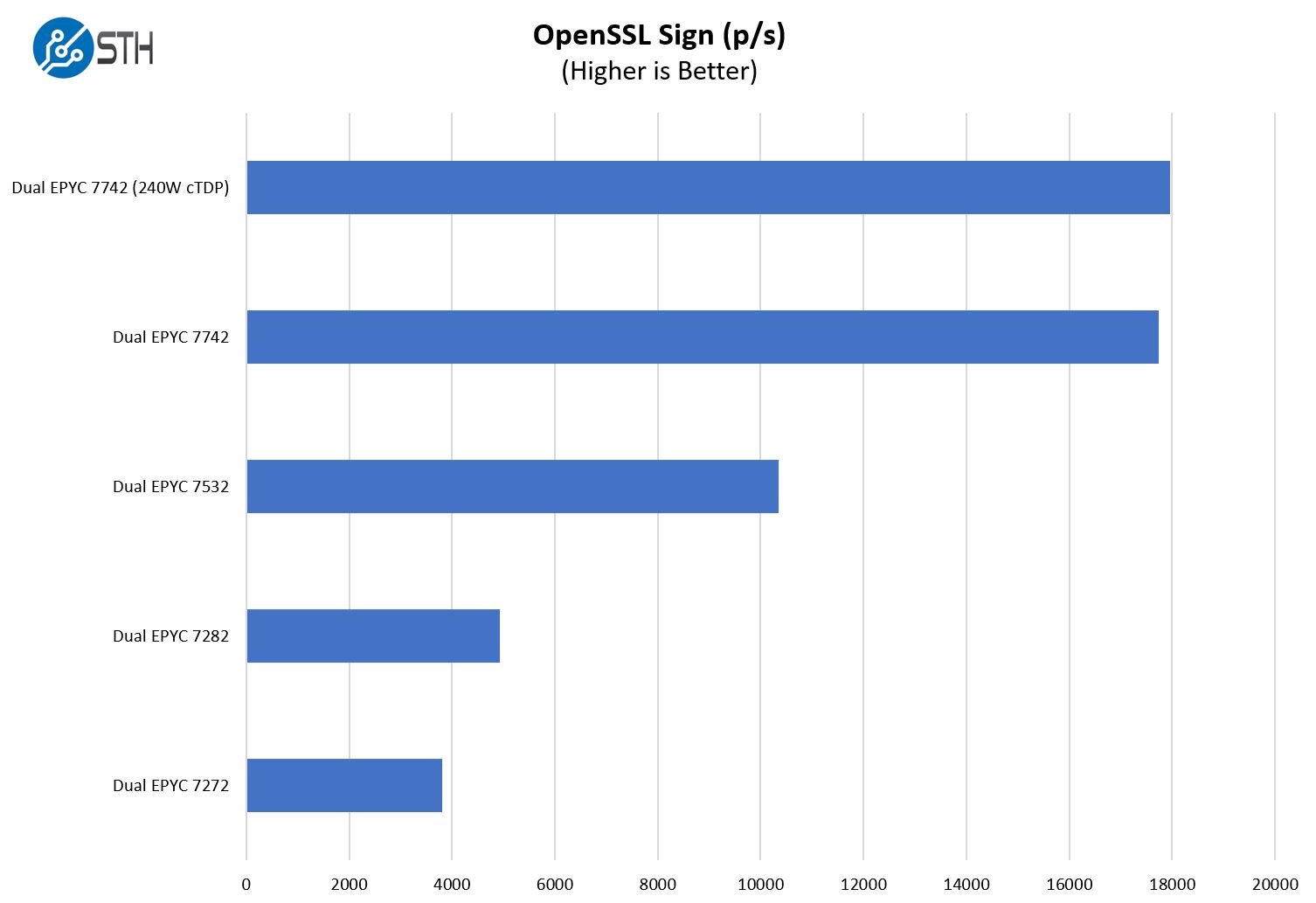
Here are the verify results:
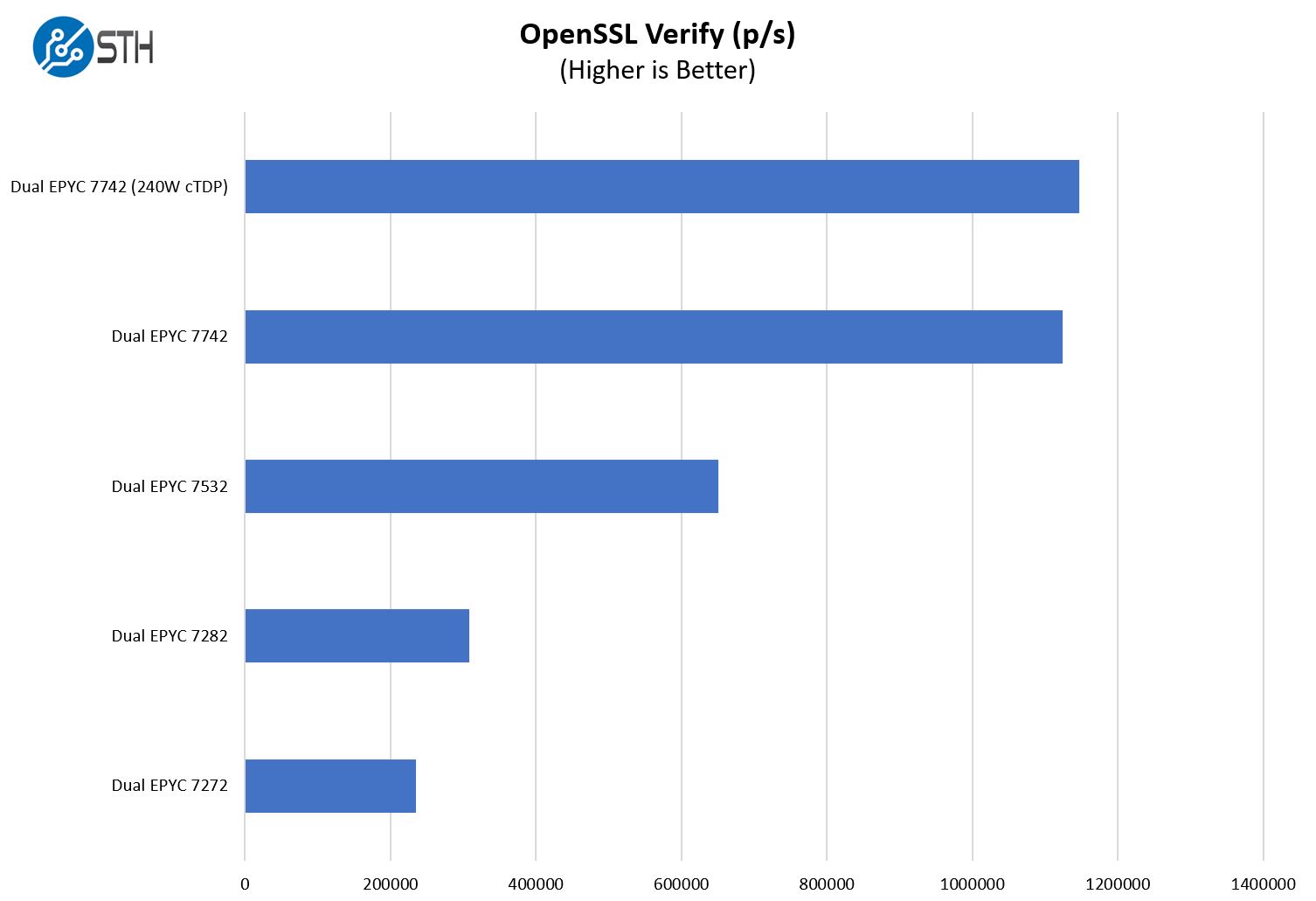
Something that may seem stark in a few of these tests is that the AMD EPYC 7282 and EPYC 7272 performs a bit lower. That is largely due to the fact that these are 4-channel memory-optimized parts. We did a piece on the AMD EPYC 7002 Rome CPUs with Half Memory Bandwidth.
Storage tends to be an application where chips such as these are very popular since one can use four DIMM sticks to lower costs. Also, many 12-bay storage systems do not need two 32 or 64 core processors, so these lower cost, lower power CPUs can be a great fit.
Chess Benchmarking
Chess is an interesting use case since it has almost unlimited complexity. Over the years, we have received a number of requests to bring back chess benchmarking. We have been profiling systems and are ready to start sharing results:
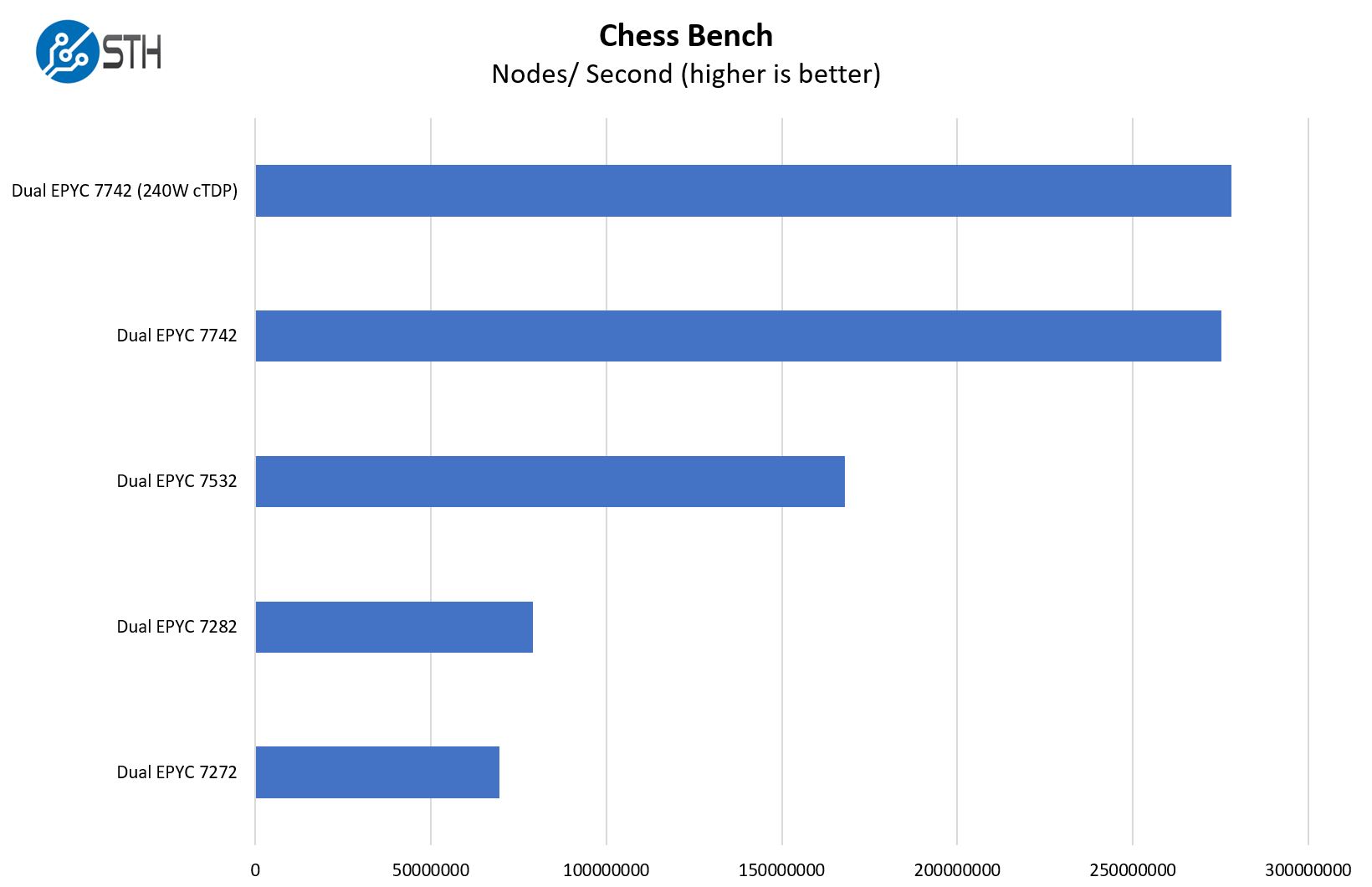
Overall, this platform has a lot of performance variation due to the AMD EPYC CPUs. For those who are looking for dual-socket Ceph or other scale-out storage nodes, or even traditional RAID or ZFS nodes, a platform like this with lower-cost CPUs can work well.
Next, we are going to move to our power consumption, server spider, and final words.

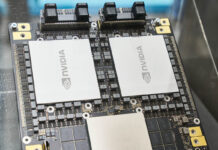


As usual a great review
To be honest this server checks all the boxes in terms of
Dual AMD 7002/3 support “high performance vs relatively low cost compared to Intel” & High RAM Support. Tons PCIe Gen 4 ready to be used on 3×8 & 4×16 expansion card. Great front LFF design with 4xNVMe & 2 SFF at the back & the best of them all
3x Full height expansion card
the question is how load these fans are during high load with a 64bit 240 Watt CPU & a full height GPU?
It is good to be on board
No mention of the FPGA that appears on the block diagram?